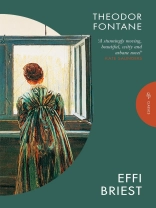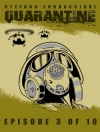An exceptional translation of Fontane's masterpiece: one of the great nineteenth century novels of adultery to stand beside Anna Karenina and Madame Bovary
__________
'I have been haunted by it … as I am by those novels that seem to do more than they say, to induce strong emotions that can't quite be accounted for' Hermione Lee, Sunday Times
'A stunningly moving, beautiful, witty and urbane novel: I was blown away by it.' Kate Saunders
'Fontane's masterpiece is now generally acclaimed as Germany's contribution, alongside Madame Bovary and Anna Karenina, to the great nineteenth-century European novels of adultery' TLS
__________
Effi Briest is only seventeen when she is married off to Baron von Innstetten, travelling to live with him in a provincial town on the remote Baltic coast of Prussia. He is twenty years her senior, an ambitious bureaucrat who is uninterested in his young wife, and lively Effi becomes increasingly isolated, bored and anxious in her stifling surroundings. A half-hearted affair with Major Crampas – a manipulative married man with a reputation for womanising – temporarily distracts Effi from her loneliness. But years later, this brief liaison will return to Effi with devastating consequences.
In this witty masterpiece of poetic realism, Fontane portrays a woman torn between her own desires and her roles as wife and mother, between her heart and the obligations of social circumstance.
Om författaren
Theodor Fontane (1819-98) was a German novelist and potitical reporter. He began writing novels – now his best known works – at the age of 57. Fontane once said that 'women's stories are generally far more interesting' , and the story of Effi Briest (1894), is considered his masterpiece.












